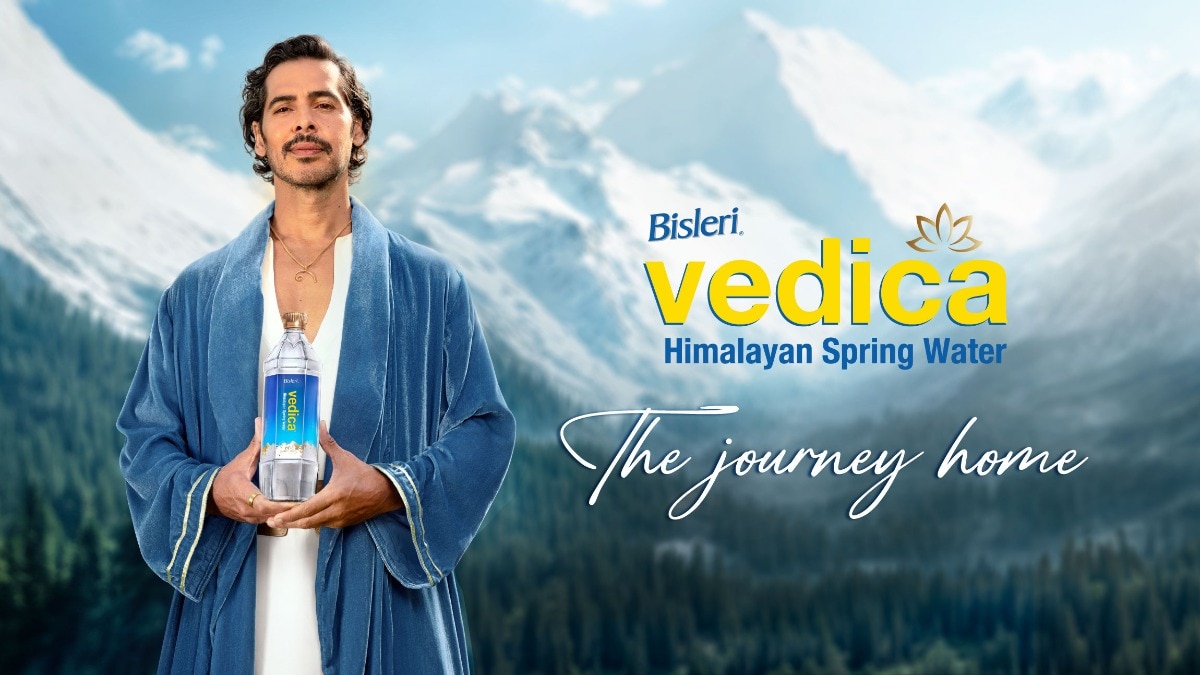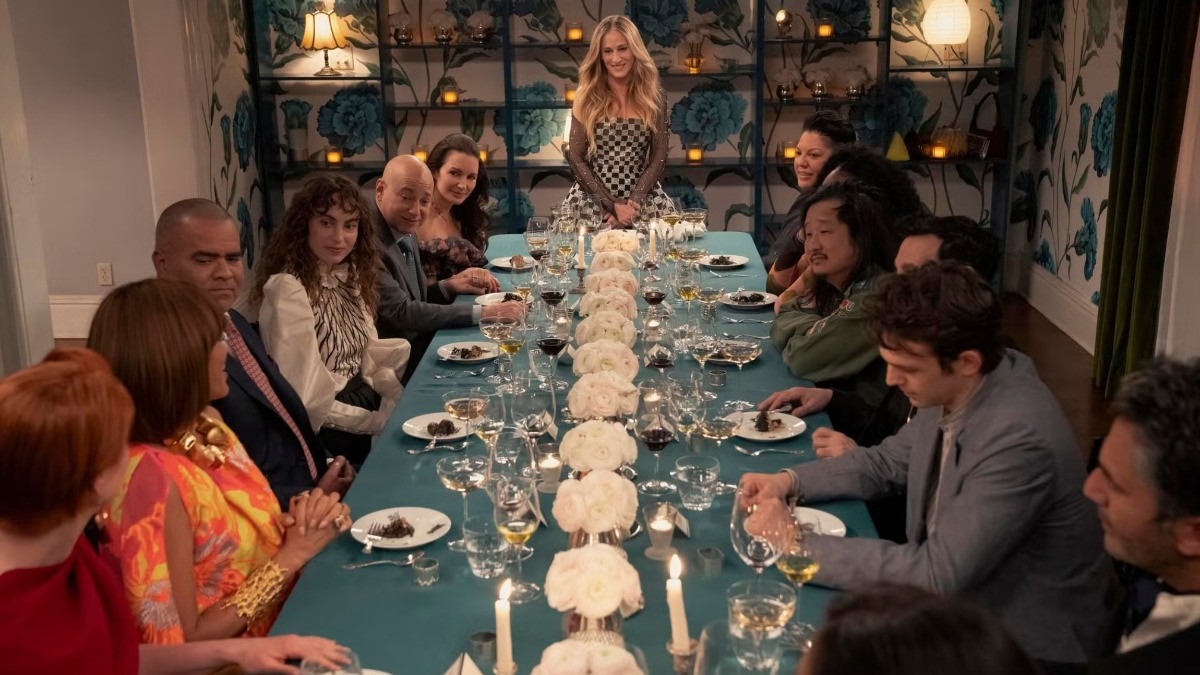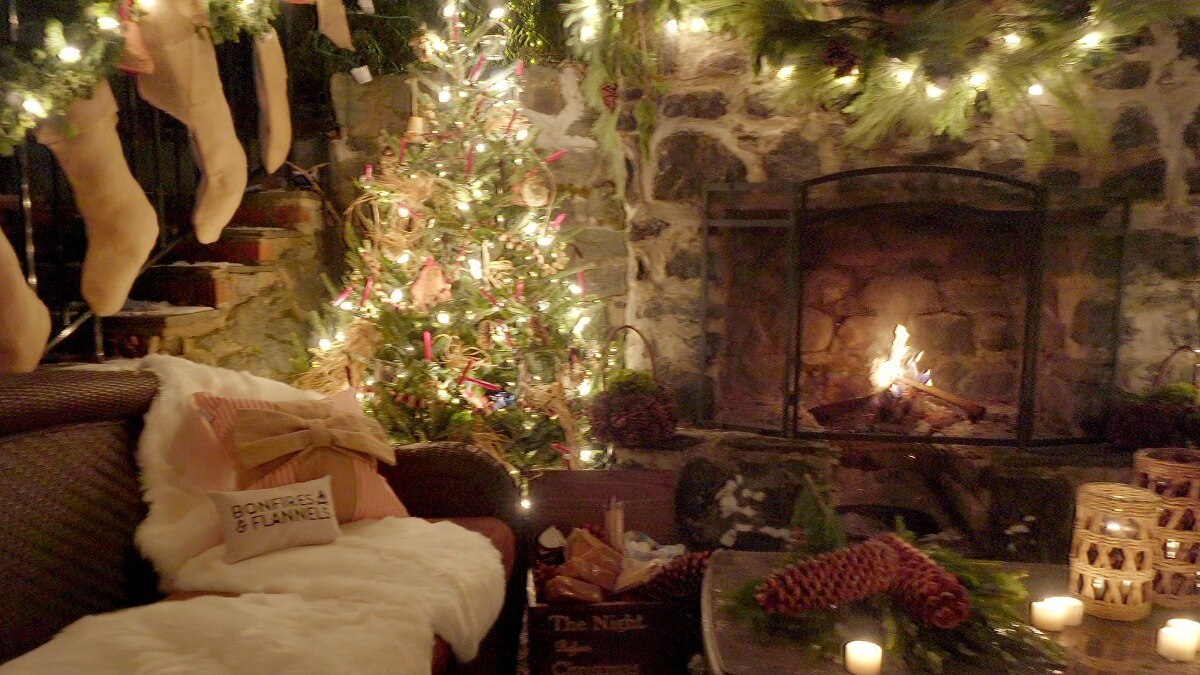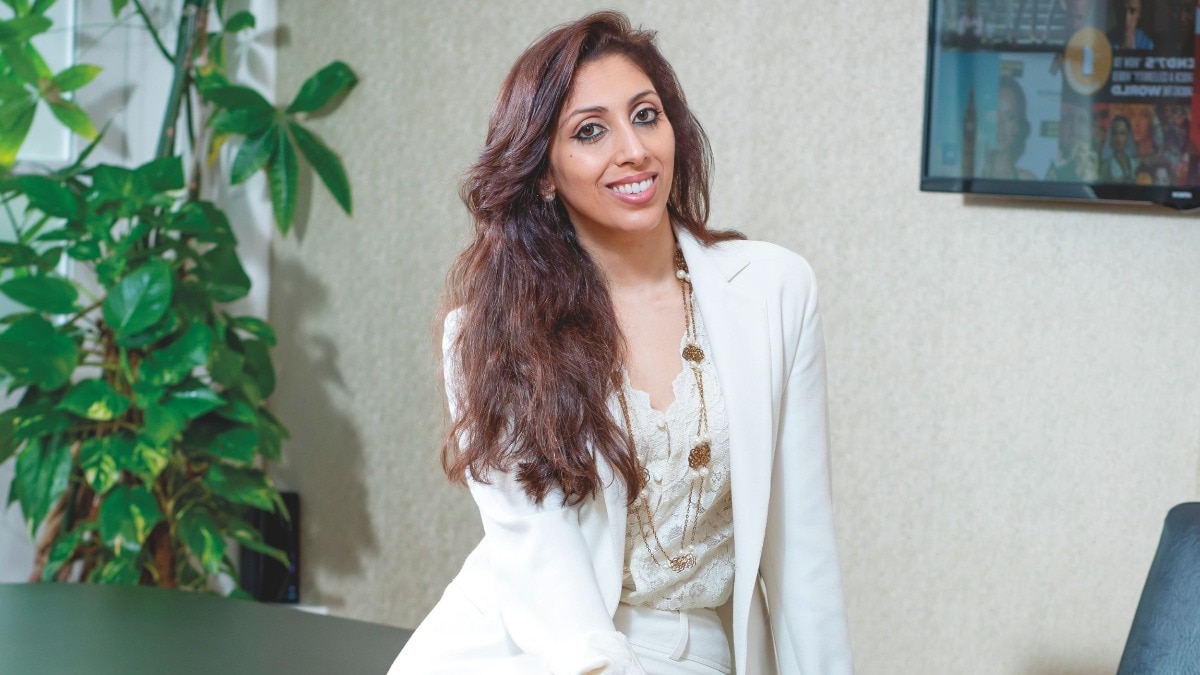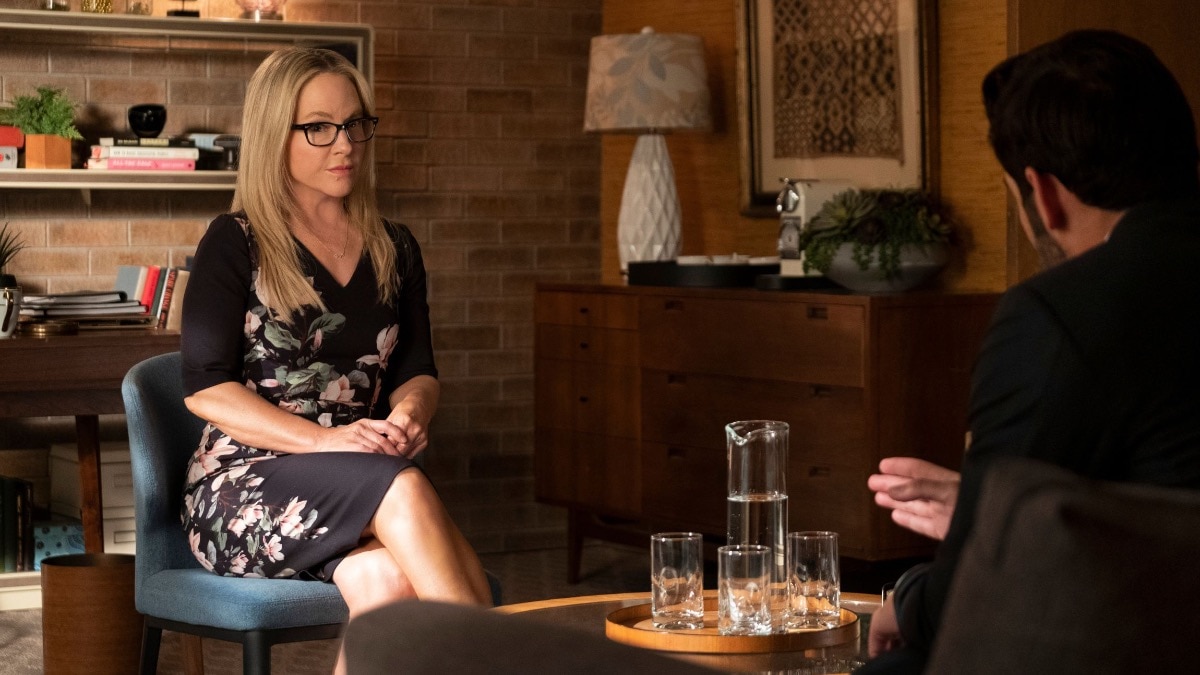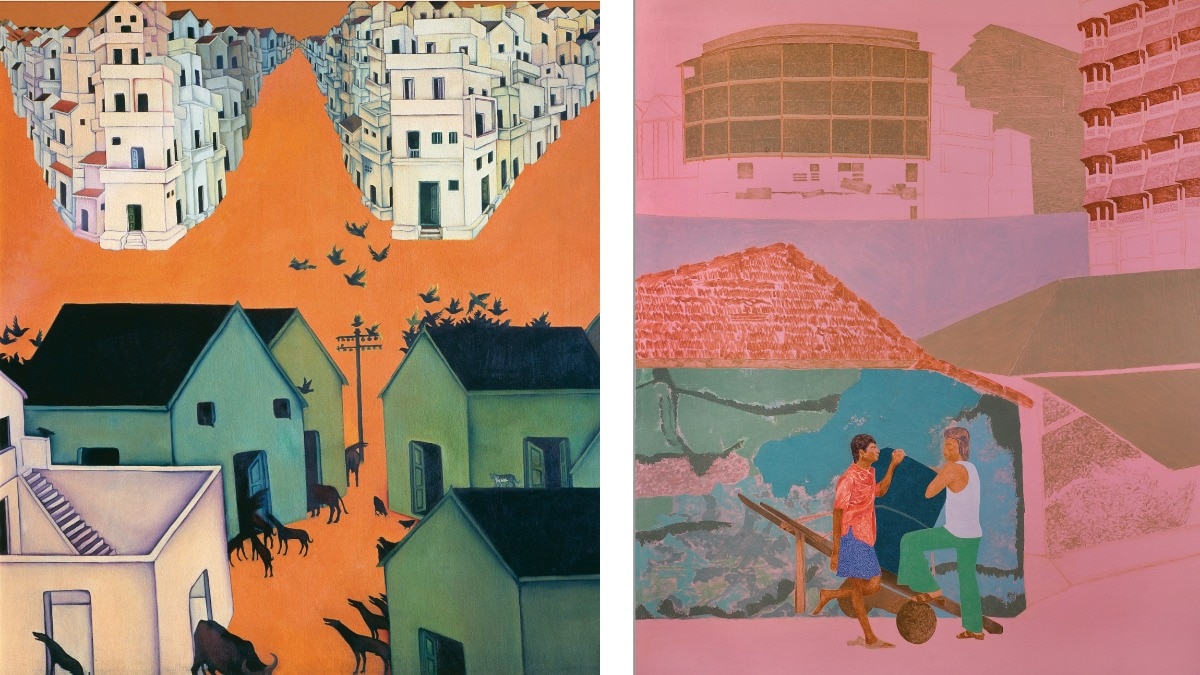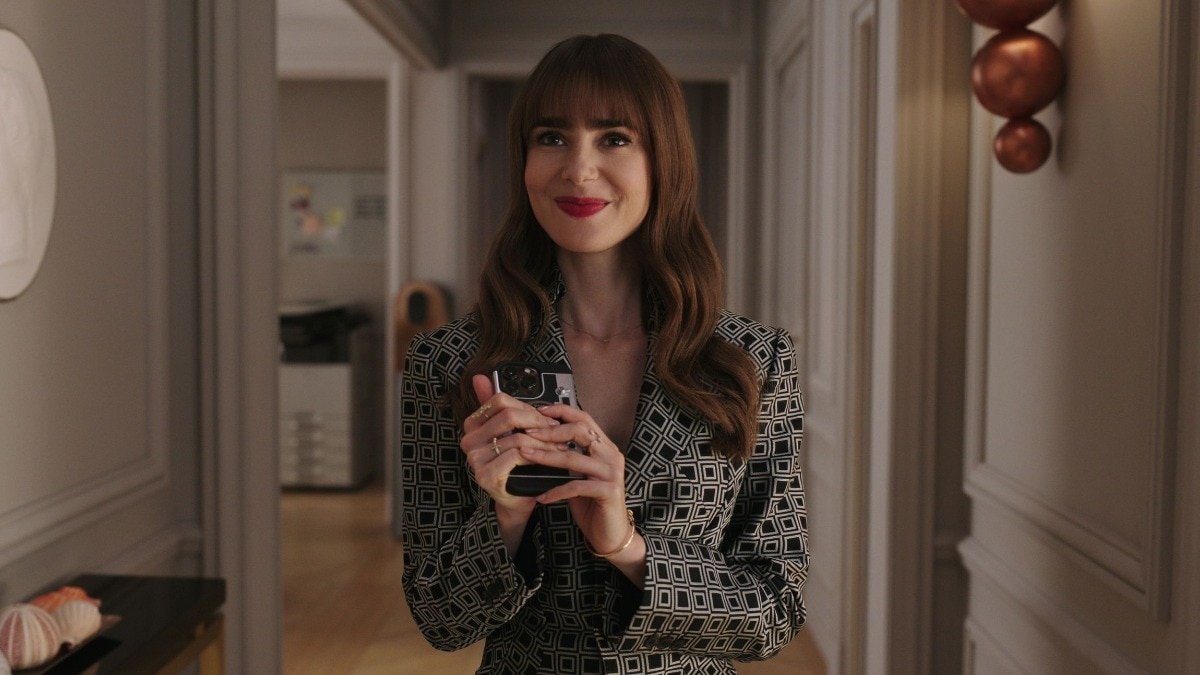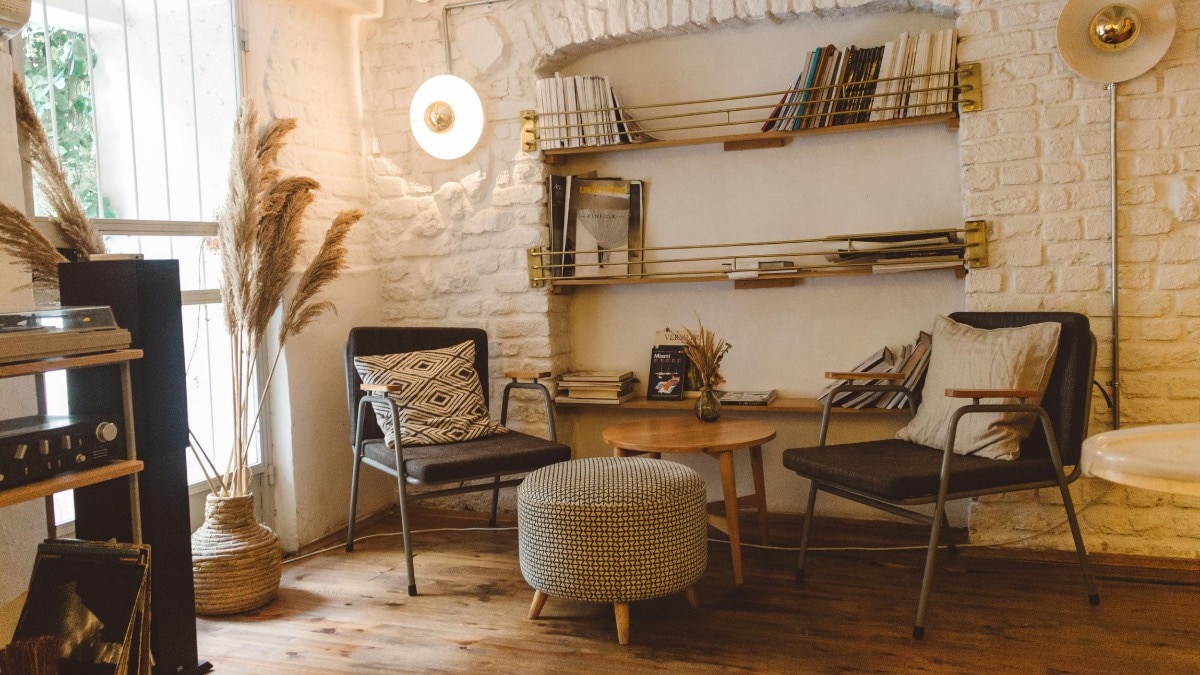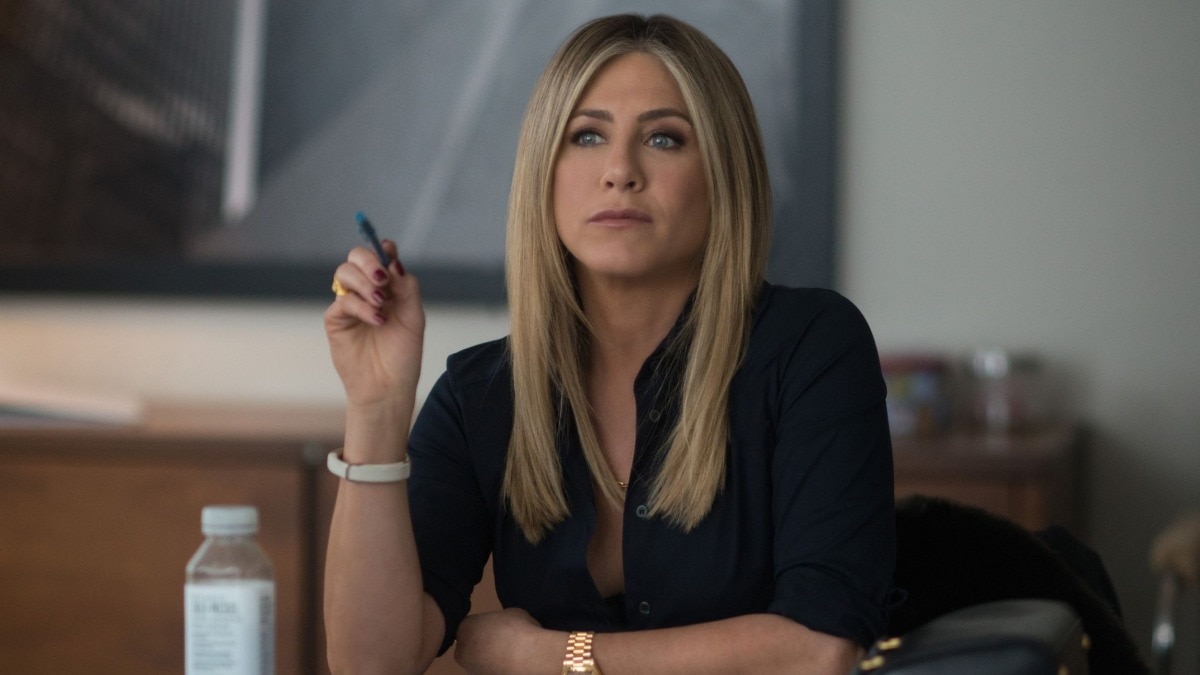
Kristen Bell and Adam Brody on reuniting for the year’s best new rom-com
'Nobody Wants This' is an exploration of family, faith, and finding your person.


Despite having worked with him multiple times, Kristen Bell still can’t quite remember the first time she met Adam Brody. The actors had certainly known each other socially, having both risen to fame in the mid-2000s on teen dramas that garnered cult followings (Bell on Veronica Mars, Brody on The O.C.).
But, as he recalls on a recent joint video call with Bell, Brody’s first significant memory of meeting Bell happened during a screening of 2011’s Scream 4, in which they both appeared but didn’t share any scenes together. Brody and his longtime agent, who is married to Bell’s longtime stylist, were on their way to some kind of Scream after-party when Bell asked for a ride and proceeded to “fold” herself into the back of their two-seater car. (Although she has no recollection of this event, Bell jokes, “Listen, I’m not going to argue that that’s not on brand for something I would do, if I needed to get to a secondary location.”)
Over the years since, Bell and Brody have shared the screen a couple of times: as exes in Neil LaBute’s 2013 bittersweet comedy film Some Girl(s), and briefly as love interests in the second season of Showtime’s corporate satire series House of Lies. But when she first read the pilot of Nobody Wants This, Erin Foster’s new semiautobiographical series based on her experiences falling in love with her Jewish husband, Bell knew there was only one actor she wanted to play her co-lead—someone with whom she had clear chemistry and could catch lightning in a bottle.
“The reason I thought it could only be Adam is because, as an actor, I’m acutely aware of what other actors do well and do not do well. Adam can stare longingly into someone’s eyes for an extended period of time—and so can I,” Bell tells Harper’s Bazaar. “And not to burst everyone’s bubble, but (the onscreen connection comes from) the math of that, the anticipation of that. If someone can hold it with you and you know that they can stay in that eye contact space, you are going to crack a lens.”
Brody was “flattered” by the offer to re-team with Bell in one of their favourite genres. “Not only do I like watching romantic comedies, I like performing them. It’s a very fun space to play in as a performer, at least for myself,” Brody says. “I thought Erin had a really fresh and funny take on it, which was ripe for stories and ripe for comedy.”
In the new Netflix rom-com, which premieres today, Brody plays Noah, an unconventional Los Angeles rabbi who falls for Bell’s Joanne, an outspoken, non-Jewish podcast host. From the moment they meet at a mutual friend’s dinner party, sparks fly between Joanne and Noah, but the new lovers must wrestle with how much (if any) of themselves they are willing to give up to make their relationship work.
“I think one of the beautiful parts about this show is, it’s trying to show something real and entertaining. I don’t know that there’s an orchestrated, calculated statement trying to be made,” Bell says. “I think this show is more experiential in a very realistic way, because I love the fact that (the characters) are not 20-somethings. I have so many friends that are 38, that are in this position of, ‘How do I date? Should I settle down?’ So this show is more of an experience than a statement.”
Below, Bell and Brody discuss this latest collaboration, the evolution of their own relationships with faith and religion, what they’ve learned about love—and the keys to landing an epic onscreen kiss.
Harper's Bazaar: The central relationship between Joanne and Noah is less a case of “will they, won’t they,” as is the custom for most rom-coms, and more “Should they be together?” How would you describe the constant push and pull between them that creates all the tension in their dynamic?
Adam Brody: Both of our (characters’) jobs, for starters, are kind of at odds with each other in our relationship. They’re not just our jobs; they’re our passions. We’re deeply passionate about our chosen careers, and that’s a bit at odds. I would say both families are (also) in the way. Mine might be the bigger obstacle out of the two, especially since I feel more beholden to them than Joanne (does with hers). And then I think (there’s) the ongoing issues of trust and commitment. I have a very committed life and lifestyle. Joanne’s committed to her job, of course, but has not had the same level of commitment and roots (in her personal life).
Kristen Bell: One reason I find this particular love story so interesting is … it’s nuanced enough to recognise that you should not be searching for a missing puzzle piece. That does not exist. That’s a myth. And let’s blame it on John Cusack and that goddamn boom box, if we must. But the reality is, you will find someone who you feel connected to. You’ll spend the next however long amount of time deciding whether or not the compromises you need to make to stay with this person are worth it, and that’s the level of nuance that the show gives you.
I love the way you said it—it’s not “Will they or won’t they?” It’s “Should they?” Part of that has to do with the external circumstances of families, lifestyles, values or lack thereof, and part of that has to do with the individuality of the two characters deciding, “Am I giving up too much of myself to get this thing I want? Am I going to regret having lost this part of myself?” Technically, you could map out those (same kinds of) stories in a Marvel movie—you find a hero, he has a problem, he kills the villain. This is way more complex, because these characters have to decide for themselves if they’re giving too much up—or not giving up enough. That, to me, is a constant roller coaster, which is why it’s interesting.
AB: I think that’s also very true to life—and very true to the show.

HB: As Joanne and Noah deepen the intimacy of their relationship, you two share some swoon-worthy kisses over the course of the first season—including the big, sweeping first kiss at the end of episode two, which will likely take some viewers, like myself, by surprise. What would you say are the keys and mechanics of landing an epic onscreen kiss?
(Bell and Brody’s jaws both drop, and they both laugh.)
AB: They’re intangible, my friend! They’re intangibles. Truly, I don’t know. All I can say is, in the script, it says something to the effect of “the greatest kiss of all time.”
No pressure!
KB: We were both so nervous!
AB: There also just happened to be paparazzi right there too, kind of getting it all. That was also a little disconcerting. (Laughs.) But to me, all that really meant was, “Just take your time.” That’s it.
KB: I think there is no way to truly break it down, but one could certainly try. I think when Adam and I read the screen direction for “the best kiss either of them has ever experienced on earth,” we were like, “Fuck! Okay, do we talk about this? Do we just go in for it? Do we just try something? I don’t know. Do we wing it?” I think what’s clear to both of us is that the butterflies and the heart palpitations live in the anticipation; the lead-up is so much more romantic than the actual kiss.
Adam, didn’t we do a couple takes where one of us was like, “Let’s just make it doubly as long—not the actual kiss, but the lead-up”? Like, “Let’s just stretch out staring at each other for as long as we possibly can before we feel like we really should have wrapped already.”
AB: You’re probably right.
KB: Focusing on the anticipation was the starting point, and then realising in the moment that Adam does this really cute thing—or did this really cute thing, (to Brody) I don’t know if this is how you actually kiss people—where he held my face a lot. And the second he did it, I was like, “Okay, well, this is so cute, and we’ve got to have it be a through line (in all the kisses).” And I think we did.
AB: I don’t think we talked about this either, but we might have—but maybe the thing that felt the most real to me is then we stop (kissing), and then you’ve got to go, and then there’s another quick kiss.
KB: That wasn’t scripted.
AB: That, to me, feels so organic, true to life—the first time you’re making out with somebody, and it’s so great and you don’t want to say goodbye, and it’s like you’re kissing until the last second.
HB: Adam, many of your past characters, including Seth Cohen on The O.C., have been religious. As a secular Jew yourself, did you do any specific research about the particulars of being a practising rabbi? And how did you and Erin want to go about subverting common tropes or stereotypes about rabbis?
AB: It’s a boring answer, but the truth is I read and watched a lot of things more than I shadowed a rabbi, which is the story people want to hear. I just read a lot of books and listened to some podcasts and documentaries (about Judaism). I swear it’s a long list. It was an informative and enjoyable one.
I think the pilot—and in many ways, a lot of the show—subverts the stereotype (of what a rabbi looks like). He’s a young guy on the dating scene, and (Joanne) first realises he’s a rabbi when he’s exhaling pot smoke—and that was the easy part, in a way. I read it, and I was like, “Oh, of course, I can be this guy. I can smoke pot at a dinner party. I know how to do that and talk to Kristen’s character.” But when I thought about it, the truth of the matter is no matter how casual, no matter how atypical he seems, he is a rabbi. He loves his job. This is a person of deep faith who thinks very thoughtfully and deeply about the Torah and the Talmud all the time and looks at life refracted through that (lens), so that was a challenge, but that was what made it fun, ultimately, for me.
HB: Both of you aren’t religious in real life, but I’d imagine that making a show built on that touchy subject has made you reflect on your own relationship with religion (or lack thereof). How do you personally feel about organised religion, and how has your own relationship with your faith evolved as you’ve gotten older?
KB: I went to Catholic school. My mother is still very religious. I would identify as a humanist. Personally, I love traditions, but what I will say is the irony here is that the community that I grew up in—where I went to elementary school, middle school, before going to Catholic school—was entirely Jewish. I was one of two Gentiles, so I was probably most familiar with Judaism as a religion more than anything else, and I love a lot of the traditions.
AB: I am not religious, and that hasn’t really changed much since I was young. In doing this (show) and thinking about this in a more concentrated way than I have before—thinking about religion, thinking about faith—I think it’s very human, whether you’re religious or not, to have a philosophy, a mythology, and a story for yourself about the world and what you’re doing here. Whether it’s “I want to leave the world better than I found it” or whatever your morality is, we all do it. Certainly, as someone who partakes in storytelling for a living, I also am constantly trying to impose a poetic form and narrative on cellular happenings around me. So I identify in that way, while not being religious myself.
It’s not to say that I don’t have my own moral philosophy and I don’t have my reasons for being here. I’m not a nihilist. Certainly, (my) children have imbued me with a deeper love, and my emotions are more right below the surface; they’re less buried than they used to be. It’s a religious experience, my experience having kids, but it hasn’t changed my outlook on faith at all. I guess I’m dancing around it, but I’m an atheist, and it’s not that I’m proud of it. But at the same time, I’m not ashamed of it. I’m happy about it, and I won’t shy away from it.

HB: You’ve both been happily married to your respective spouses for over a decade now, so you’ve likely had some variation of the conversations that Joanne and Noah are forced to have in the show, especially when the going gets tough. How have your own views on love—and what’s necessary to sustain a relationship—evolved since you met and married your spouses? (Bell is married to Dax Shepard; Brody is married to Leighton Meester.)
AB: I just want to echo something Kristen already said, which is the idea of sharing, compromising, and merging: How much are you changing? How much of that is good, and how much are you willing to do? The idea of compromise sounds like you’re losing something—it’s not that. It’s learning as well, but, by nature, you’re changing if you’re going to be with someone to that degree, and hopefully, that person is a positive, that’s all for the better. I think in both of our cases, it is.
KB: Yeah. I think it would be disingenuous to say you can just find your perfect puzzle piece. That’s a preschool story version of it. As you grow up, you realise people have needs, wants, triggers, comforts, and annoyances.
I feel like what I’ve learned in my marriage is that I married my polar opposite—and I love it. For me personally, it is endlessly stimulating to have an alternate point of view and a devil’s advocate in the room. The two things we share is a desire to raise our girls right, and a desire to grow constantly. So there is not one mathematical equation that will work for everyone, and I think that’s a sad thing to say out loud because people want an answer (for a long-lasting marriage).
I think I’ve realised that I can stay in love, and this is something that my husband and I talk about often: He is on my team at all times. At the height of any argument or disagreement we have, I still know he is on my team. To me, that’s what a good foundational relationship is. It actually doesn’t matter how often you disagree or have interests that stray from each other. I like knitting. He likes motorbikes. But can you trust yourself enough to allow yourself to trust the other person? … That’s what I feel like I’ve learned is a true relationship, at least for me.
AB: I didn’t know 12 years ago that I couldn’t stay exactly how I was (in a relationship). You’re going to have to grow and change and be comfortable with that. And at the same time, I think for a successful relationship, as Kristen was saying, yeah, you have to be with someone that’s on your team—and a lot of that starts with you. Before you’re with someone else, you have to have your own self-respect to know—and the sense—to be with someone from the get-go whose intentions are good and whose character is sound. For all sorts of reasons, upbringing has a lot to do with it. Some people have difficulty with that, and it’s hard to change. You’ll grow together, but you’re not going to change someone’s character. So, the foundation has to be really good, and if your foundation’s good, then you can probably weather anything.
This is my own personal feeling: Some people have different wavelengths or different resting moods, but I’m also like, “I want (my marriage) to feel really good most of the time,” and it doesn’t mean you’re not going to compromise, it doesn’t mean you’re not going to swallow your pride, but it should be a joy in general. I’m only speaking for myself, but that’s what I’m after.
KB: I’ll add one more thing: You have to want to root for that person too. You can’t just expect them to want to root for you. You have to be whole enough to want to root for the other person, even when they’re being really annoying. (Laughs.)
This interview has been condensed and edited for length and clarity.
Lead image: Netflix / Jamie McCarthy
Also read: The remarkable evolution of the Joker on screen
Also read: 6 web series based on the riches to rags theme that you need to watch

